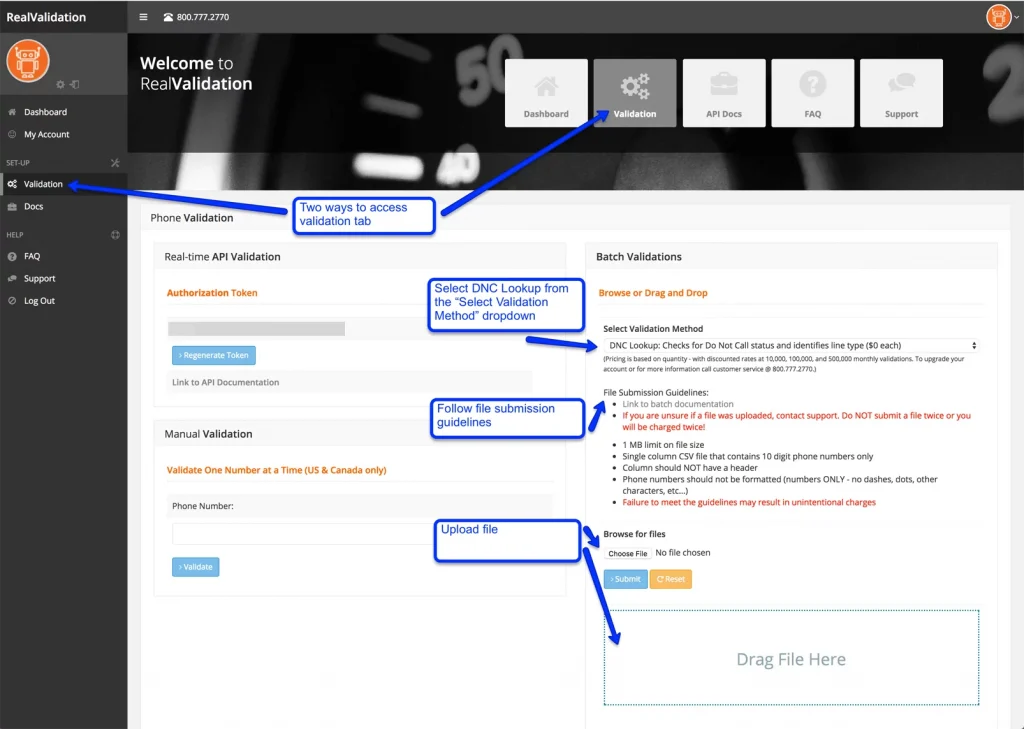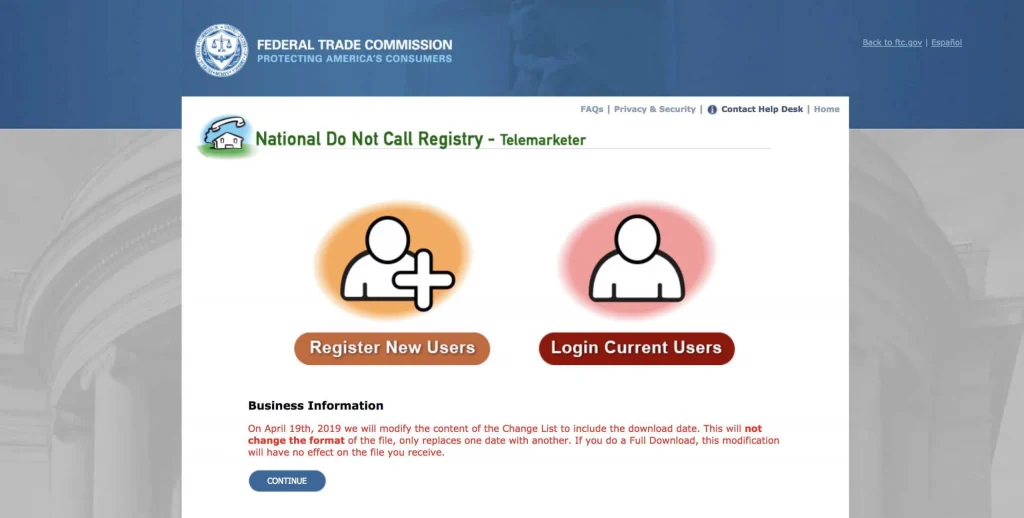Do Not Call List Lookup
DNC Lookup – Do Not Call List Lookup
The TCPA & Do Not Call Compliance Solution
When choosing a DNC (Do Not Call) service to minimize TCPA (Telephone Consumer Protection Act) violation risks, remember to check all three U.S. DNC lists, as calling a number on any of these lists constitutes a violation.
Also, check the Known Litigator list to identify repeat plaintiffs responsible for approximately one-third of all TCPA lawsuits. This step is crucial for reducing exposure to TCPA-related risks.
In addition to the points above, our Do Not Call Lookup includes information about the phone type, such as mobile, landline, or VoIP.
Be safe, stay compliant!
"*" indicates required fields
DNC Lookup now includes a TCPA Known Litigator Scrub
Remove TCPA litigators and serial plaintiffs from your lists.
Is Your Business in Do Not Call Compliance?

RealPhoneValidation encourages businesses making outgoing phone calls to check the Do Not Call list and take the necessary precautions to stay compliant with Do Not Call rules & regulations. It’s easier and more affordable to stay do not call list complaint by running your phone numbers through a DNC check before you start making calls or launching marketing campaigns than to receive a do-not-call violation and have to pay fines and legal fees after the calls have been made.
The RPV DNC Scrubbing Solution
Our DNC Lookup service is a batch service to scrub existing lists instantly or as a real-time API to perform a DNC check at the point of entry on web forms and apps. Our service is updated daily and returns information from the 3 Do Not Call databases: the National Do Not Call Registry, State, and DMA. In addition, DNC Lookup identifies landlines, VoIP numbers, and wireless numbers (cell phones and mobile phone numbers) to help you stay in call compliance with TCPA regulations.
Our Do Not Call lookup is 100% accurate.
Our records are updated daily directly from the Federal Trade Commission’s do not call registry, guaranteeing DNC lookup accuracy of 100%.
How DNC Lookup works:

DNC Lookup checks the National Do Not Call Registry, and all states do not call lists, Direct Marketing Association Telephone Preference Service (DMA TPS), TCPA Known Litigator List, and phone type. DNC Plus includes DNC Lookup plus connected/disconnected status.
What is the DNC Registry?
The National Do Not Call Registry was started by the Federal Trade Commission (FTC) to protect consumers from unwanted sales calls. Registering is free; anyone can sign up by visiting donotcall.gov and registering their number.
The Federal Trade Commission posted this warning to consumers: “Most legitimate companies don’t call if your number is on the Registry. If a company is ignoring the Registry, there’s a good chance that it’s a scam. If you get these calls, hang up and file a complaint with the FTC.”
What is Do Not Call List Scrubbing?
DNC list scrubbing identifies numbers that have signed up to be on the federal, state, or Direct Marketing Association’s Do Not Call lists. Without conducting a DNC lookup, telephone numbers listed on any of the DNC lists could easily be dialed, putting your organization at risk for fines and penalties. It doesn’t matter if the call was placed intentionally or by accident – you will be held responsible.
What is a Subscription Account Number (SAN)?
A Subscription Account Number or SAN is the number that identifies an organization that has agreed to abide by regulations set forth by the FTC and has registered for an annual subscription to the Do-Not-Call Registry. RealPhoneValidation requires that you enter your SAN before submitting your DNC check.
Who needs a SAN?
Any organization that is selling or marketing services or products by telephone.
How do I register for a SAN?

- Go to telemarketing.donotcall.gov
- Select ‘Register New User’
- Complete the Organization Information screen
- Assign a ‘Authorized Representative’
- Record your SAN, organization ID, and passwords. You will be required to enter your SAN, Organization ID, and SAN expiration before using RealPhoneValidation’s Do Not Call Lookup service.
- After enrolling, you will receive an email to activate your account.
- Once your account is activated, log in to assign a representative and choose the area codes you would like to subscribe to. For help selecting your desired area codes, refer to nanpa.com.
DNC Checker Best Practice Recommendations
- Create a written DNC policy containing detailed information on proper Do Not Call procedures for your staff.
- Maintain an organization-specific internal DNC list file so you can add individual numbers if requested.
- Do not validate more numbers on your calling list than you will call within 30 days of validating. If a number enrolls in a DNC list, you have a safe harbor or grace period of 30 days if you can prove that the number was checked.
DNC Lookup Service FAQ’s
Do Not Call List Lookup Service questions:
Making Telemarketing Calls? Get Compliant – Check Do Not Call List Before You Dial
Start Using DNC Lookup Today
DNC Scrubbing is easy, and the first 100 lookups are on us. There’s no contract and no credit card required to get started.
"*" indicates required fields